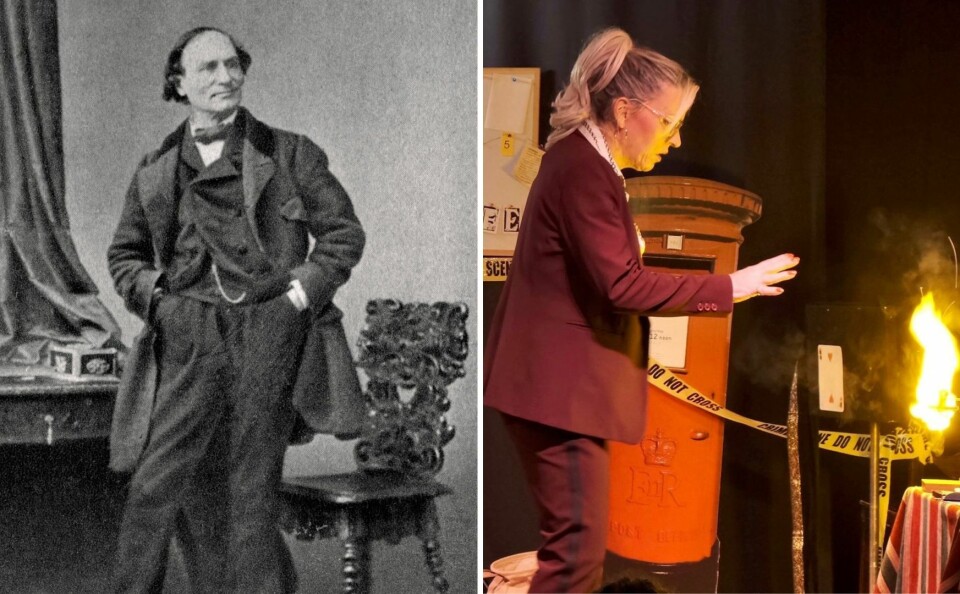-
What are the best ways to access French family history records?
Several online resources are available
-
Photos: D-Day beaches and Carcassonne put forward for UNESCO recognition
The iconic sites are set to be considered in July next year
-
Château de Monte-Cristo: Alexandre Dumas’ ‘paradise on earth’ in France
The author regularly entertained friends at the château in Yvelines near Paris
How a French watchmaker became the father of modern stage magic
France is seen as the birthplace of conjuring thanks to a 19th century watchmaker from Blois

Frenchman Jean-Eugène Robert-Houdin is seen by many as the father of modern stage magic.
“Everybody talks about him, from the US to Japan,” the Cannes-based magician Zatanna told us.
Read more: Franco-Australian former water ski star nominated for top magic prize
“Even if the first magic trick we know of is a cups-and-ball trick on the wall of a 4,000-year-old Egyptian pyramid, and other magic comes from China and Greece, which were more evolved than us at the time, modern magic came from France with Robert-Houdin, and Austria with Hofzinser in the same period.”
Read more: Magical tour: Discover France’s most spectacular illusion museums
An accidental magician
Robert-Houdin (1805-1871), from Blois, Centre-Val-de-Loire, was a watchmaker and illusionist, and is seen as having made conjuring a fashionable entertainment, as opposed to a fairground sideshow or, before that, something feared in the days of witch hunts.
He is said to have got into magic by accident after ordering books on clockmaking and receiving a set of magic books by error instead.
Harry Houdini took stage name from Frenchman
Among his most famous tricks was the Orange Tree, where he would make a ring disappear and then he would demonstrate an automaton of a tree, which appeared to blossom and fruit on the stage.
“The fruit would open and butterflies would come out, carrying a handkerchief, and the ring was inside,” Zatanna said.
Later, the famous American-Hungarian magician and escapologist Harry Houdini took his stage name from Robert-Houdin.
Read more: French artist transforms Eiffel Tower with optical illusion
Global federation in France includes UK’s Magic Circle
France is also home to the Fédération internationale des sociétés magiques, whose members include the UK’s Magic Circle, the FFAP and Cercle Français de l’Illusion, and the Society of American Magicians in the US.
Founded in the 1930s, it runs a three-yearly World Championship of Magic, which will next be held in Italy in 2025.
Zatanna said: “It was the first international body for magicians, based in France, with French as an official language, even if everyone tends to perform in English in international competitions now.”
Meanwhile, France’s national body FFAP (Fédération Française des Artistes Prestidigitateurs) has been going since 1903, representing the interests of professional magicians in the country.
Read more: French performance artist locked inside statue of himself for 7 days
Stage magic in France today
Zatanna said good contemporary French magicians include Antonio, who often appears on television and was the first magician to win M6’s La France a un incroyable talent, in 2016, and Fabien Olicard, who started on YouTube but went on to fill venues such as Paris’s Zénith and Olympia.
In close-up and card magic, she said Bernard Bilis stands out. He used to appear regularly on TV show Le Plus Grand Cabaret du Monde, which ran from 1998 to 2019.
“Also Dani Lary for big illusions, who also appeared on that show,” she added.
Related articles
High kicks and tragedy – the Irish woman behind Paris’ Bluebell Girls
Jacques-Yves Cousteau - undersea explorer, filmmaker and so much more
Jules Verne: the hidden story of France’s first science fiction writer























